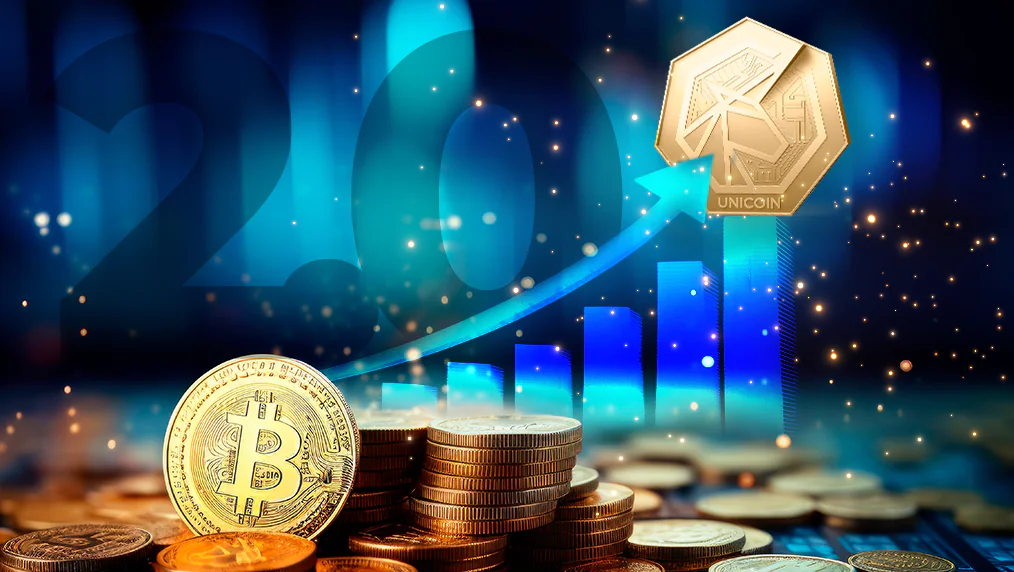How to Choose an Exchange for Entering the Crypto Market
 2 min read
2 min read- October 6, 2023
- by UH News
The global adoption of cryptocurrencies has given rise to over 600 exchange platforms, offering diverse options for the safekeeping and exchange of digital currencies. While this abundance can be overwhelming for newcomers, experienced traders appreciate various choices for managing their digital assets.
As of 2023, global crypto adoption has reached 8.8%, marking a 3% increase from the previous year, with an anticipated projection of 12.5% by 2027. The escalating value of many cryptocurrencies has sparked heightened demand, prompting discerning buyers to seek reliable exchanges. And so, the question arises: what factors should be considered when selecting a crypto exchange platform? Robust Security
Security takes the forefront, with an evaluation of the exchange's external and internal encryption mechanisms being crucial. The platform's ability to provide comprehensive protection for user data, currencies, and activities is paramount. Features like high-security standards and authentication, as well as additional safeguards such as recovery insurance, should be considered. Some platforms, like Binance, also provide recovery insurance to users in the event of an account vulnerability.
Token Availability, Payment Methods, and Global Reach
An exchange should offer a diversity of cryptocurrencies, providing users with ample choices. As an illustration, Coinbase boasts a portfolio of over 300 registered tokens. Additionally, supporting various payment methods, such as deposits, credit/debit cards, and other digital platforms, enhances user flexibility.
A platform's global operations are also a crucial consideration. Some exchanges, such as Brazil's Foxbit, cater to specific regions, while others operate on a global scale. However, it's worth noting that certain international exchanges have faced legal action from the United States government for operating without proper authorization. Consequently, confirming that the selected exchange is licensed in the chosen geographic location and facilitates seamless value transfer between cryptocurrencies and fiat currencies is essential.
Low Commissions and Associated Benefits
Evaluating commission rates and associated benefits can significantly impact profitability. Commission rates typically range from 0.1% to 0.2% per transaction, with some platforms offering bonuses for referrals and commission-free token earnings.
Government Regulations
Exchanges with reputable standing often comply with regional or government regulations. For instance, INX is the only exchange approved by the U.S. Securities and Exchange Commission. Choosing a regulated platform gives users greater peace of mind and confidence, ensuring access to cutting-edge cryptocurrencies while adhering to legal frameworks. Diverse asset-back Unicoin—the emerging crypto coin that endeavors to minimize the typical volatility associated with other digital currencies—recently announced that it would list its currency on INX.
Choosing an exchange is a decision that requires thorough research and careful consideration. Prior to finalizing a choice, investors should clearly outline their objectives, bearing in mind that not all platforms are universally accessible in every country.
Related News

Defy the 70% Failure Rate: 5 Game-Changing Habits of Successful Billion-Dollar Startup Founders
How do successful founders overcome the 70% startup failure rate? Discover the strategies that help founders overcome challenges and achieve unicorn status.
- October 11, 2024
- 2 min read

Halving is Coming: Why Bitcoin is Likely to Lose its Crypto Market Dominance
The market share of the first cryptocurrency could shrink in the face of the emergence of more transparent and regulated alternatives.
- March 29, 2024
- 1 min read

The Decline of Non-Coiners is Paving Paths for Potential Users
By seeing how digital assets can complement their financial plan, the vocal minority that exists and declares the end of cryptoassets may be incorporated into the ecosystem.
- March 27, 2024
- 1 min read

Unicoin Launches Its Primary Offering on U.S. Regulated INX.One Trading Platform
Backed by Real World Assets, Unicoin Security Token is Now Officially Available on the INX Trading Platform.
- March 19, 2024
- 5 min read
